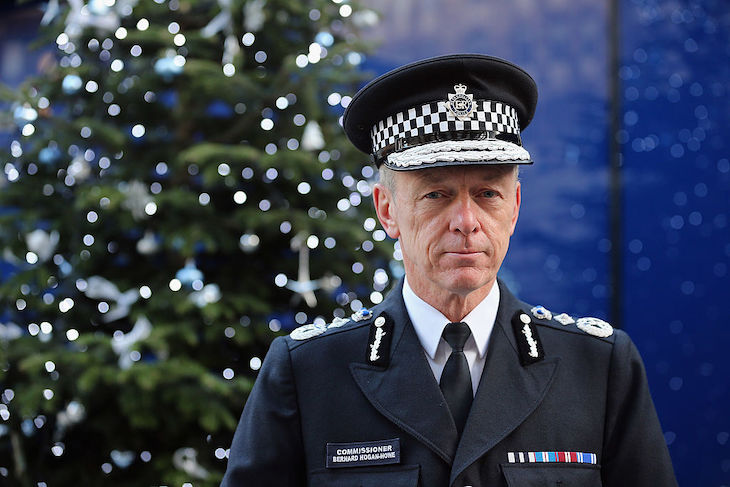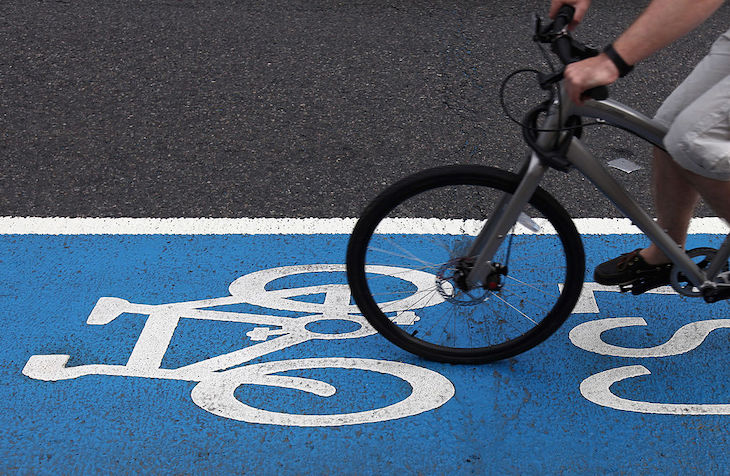There was little competition for the oddest and most obscure bill to be announced in the King’s Speech: the proposal to licence London’s pedicabs. On the list of the most pressing issues facing the nation, it doesn’t tend to feature very highly. There must be many people in Britain who have never seen a pedicab, let alone ridden in one or come into conflict with these vehicles, which tend to ply a tiny zone of tourist London around Piccadilly Circus. But could the move to regulate pedicabs evolve into something a little more substantial?
During a debate on the pedicab bill in the Lords this week, Lord Hogan-Howe, formerly chief commissioner of the Metropolitan Police, made the suggestion that the legislation be expanded to cover cyclists in general.
The vast majority of road casualties are connected with cars
‘If we learn any lessons about holding pedicab drivers and owners to account, could we consider whether we take those lessons and apply them to cyclists?’ he said. In particular, he pitched the idea that bicycles should have registration plates to allow irresponsible cyclists to be identified (whether he meant small markings on the mudguard, or large number plates which would be read by traffic cameras, he didn’t say).
Hogan-Howe, who is a crossbench peer, does not speak for the government in any capacity, but the very fact that we have a pedicab bill at all does rather reveal a certain schizophrenic attitude of the Prime Minister: while he has decided to get heavy with a rather small subset of cyclists, he is simultaneously promising to roll back regulation of motorists. Also contained within the King’s Speech was a proposal to allow driverless cars on the streets – in spite of the many problems which the technology has revealed during trials in San Francisco and elsewhere. Rishi Sunak has also launched a review into 20 mph zones and low traffic neighbourhoods, and promised to be the motorist’s friend (although not to the extent that he felt able to use central government powers to try and block Sadiq Khan’s expansion of the Ultra Low Emissions Zone (Ulez)).

If you are worried about pedestrians being mowed down by pedicabs, or passengers being thrown off overturned vehicles, surely you should be even more concerned by the continuing toll caused by motor vehicles. The uncomfortable reality is that the annual number of road deaths, which fell steadily by two-thirds between 1980 and 2010, has stalled at around 1,700 a year since the present government came to power. While it is true, as Lord Hogan-Howe says, cyclists can and do kill, the vast majority of these casualties are connected with motor cars. Pedicabs do not feature in the statistics. What’s more, those cyclists who have killed pedestrians are invariably brought to justice.
More regulations on cyclists, especially electric bicycles, as well as e-scooters would certainly be popular with some voters – and so I wouldn’t be surprised if the government adopts some of Lord Hogan-Howe’s suggestions. E-bikes, in particular, seem to be being used freely on cycle paths when some should in fact be classed as motorbikes. Yet the voters who would be impressed by such measures are also like to be dismayed that the government is in any way considering watering down low traffic neighbourhoods and 20 mph zones – initiatives which have made life a lot more pleasant in many Conservative-voting suburban areas.
At present, government policy seems to be taking its direction from what might be called the militant motorists’ lobby – a body of car-drivers who demand absolute freedom for themselves, but who come over all authoritarian when demanding laws to deal with the cyclists and pedestrians who get in their way. I fear that throwing in the government’s lot with them will prove an electoral – as well as moral – dead end.
This article is free to read
To unlock more articles, subscribe to get 3 months of unlimited access for just $5








Comments
Join the debate for just £1 a month
Be part of the conversation with other Spectator readers by getting your first three months for £3.
UNLOCK ACCESS Just £1 a monthAlready a subscriber? Log in